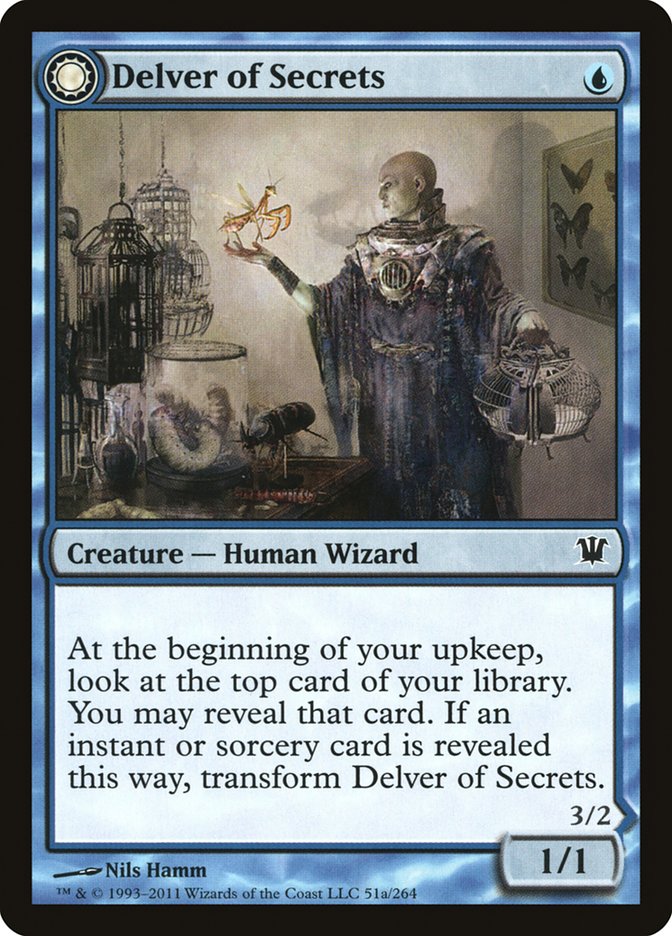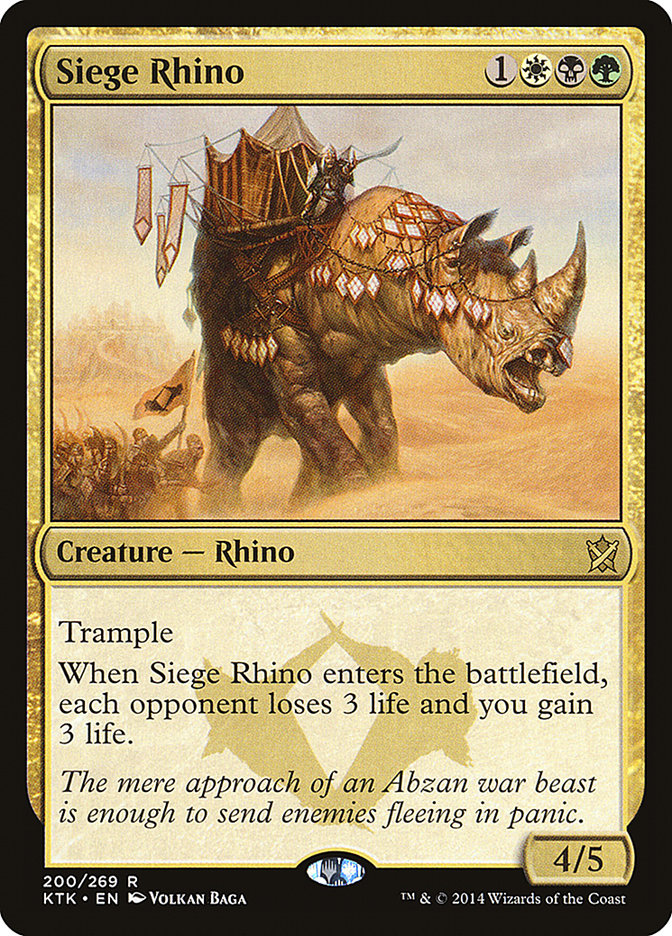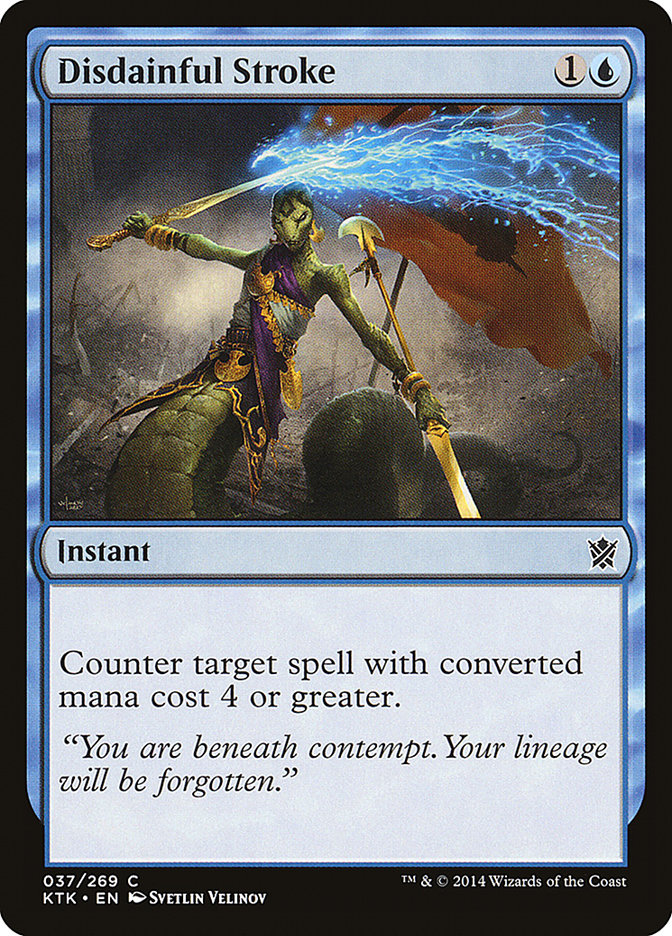This week, I decided I’d take a break from the Single Card Spotlight Series in order to bring you an article like I used to write. Although having a
recurring column on SCG allows me to do a lot of format commentary and decklist sharing much in the same vein of the necessarily usual style of Magic
strategy writing, I think it’s important to write about what inspires you, and as a guest columnist for SCG over the last few years, my work typically
focused on the greater cultural impact of Magic and its community or on concepts that tried to zero in on some profound aspect of our game that nobody else
had really spent much time on.
Lots of players write about health and fundamentals as they pertain to Magic success, but I want to go a step further. I want to highlight that part of the
inherent beauty of Magic is in its inseparable connection to our lives. Today, I want to talk about being a better person, being a better Magic player, and
if you’re paying attention, the notion that the two concepts are naturally intertwined.
The “No Reason Not To” Rule
You’re playing Legacy Burn. It’s your turn, and your opponent is at four life. You drew a Fireblast for the turn, your only card in hand, but you need to
sacrifice your only two lands to cast it. You know they have a Force of Will based on a Delver reveal from earlier, the same Delver that’s going to kill
you soon. They also have an unknown card. You pass the turn back. They cast a Tarmogoyf. Your clock just sped up big time, especially if they drew a burn
spell. It may be now or never. You untap, draw. It’s a fetchland you can’t even use at this point. Forced to go all-in, you put your Mountains in the
graveyard and cast Fireblast. Your opponent pitches Brainstorm to Force of Will, and now you lose.
“Whew. So glad I drew that Brainstorm,” your opponent remarks.
You can find any number of ways to dissect this scenario from a percentage standpoint. The details aren’t terribly important. The lesson here isn’t about
Burn versus Delver matchups or about if you should’ve been so quick to incorrectly presume Tarmogoyf was the drawn card. This situation requires a lot more
context in order for us to make those sorts of judgments. The only strictly Magic lesson to be learned from this scenario as presented is the occasionally
reinforced “instants can be used any time, not just at the last possible opportunity or at the end of your opponent’s turn” wisdom.
Are you going to kill your opponent’s Courser of Kruphix now or wait until their draw step?
“I’m just going to kill it now. I don’t really care what the next card on top of their deck is.”
Are you going to set an alarm for in the morning when you need to wake up for work?
“I’ll be fine, I’ve been getting up early lately.”
Did you leave your car unlocked when you went into the grocery store?
“This town is super small and safe. Plus, there’s nothing of value in my car anyway.”
All of these answers have the same obvious counterargument:
There is positively zero reason to not just do the thing you’re not doing.
This basically comes down to Expected Value. It’s a concept well worthy of research if you’re highly interested in gaming percentages, especially in Poker.
It is a concept that I’m not going to pretend I’m a mathematical expert on, but the concept itself is incredibly simple as it pertains to this specific
discussion.
Magic players love to talk about EV. They love to talk about good value, bad value, and it’s become such a part of our colloquial Magicspeak that you’re
hard-pressed to find a tournament hall where at any given time, someone isn’t talking about it (though they may even be aware of it). But the thing that
takes it from a solidified science of decision-making into a hackneyed meaningless Magic meme is the fact that players stop applying it the second they
stop playing Magic.
“I’m late for work.”
Set your alarm. Get up ten minutes sooner.
“Someone tried to steal my car!”
Lock it.
There is no reason not to do it.
A tremendous amount of bad luck in your life and in your Magic can be outweighed by simply doing things you should already be doing and not being lazy
about it.
There are thousands of small decisions we make every day that are more important than any given Magic game. And what’s more, they’re easier to make and
execute. So why don’t you do it?
I can’t help but think about the GP Memphis horror stories from last weekend. Awful roads, cars crashing, pandemonium.
Years ago, I was working an Open Series event in Indianapolis. The weather got especially terrible, and there were lots of power outages, states of
emergency and all that. As the weekend wore on and it was apparent that the weather in Indianapolis was going to prevent us from travelling back to
Virginia, stories started pouring in of people who left the tournament only to be stranded in their cars, or worse, players who had gotten into wrecks. I
don’t want to paint a broad stroke over everyone’s individual circumstances. Everyone has different jobs, different obligations; I don’t want to call
anyone who left foolish. But the sheer number of people from the site who were now in extremely difficult circumstances because of poor decision-making was
extraordinary. These were the same players who spent endless mental energy trying to hone in on the percentage of likelihood that their opponents were
holding certain cards, taking certain lines, sideboarding a certain way. And then, as soon as the Magic cards were put away, they flipped the switch and
crashed into snow banks. (As a quick aside, I don’t want to compare the situations in Indianapolis then to Memphis last weekend. The Memphis weather was
largely underway ahead of forecast and after most people had already begun travelling. The Indianapolis storm happened in the midst of the weekend and was
a known quantity by the time most people were leaving. One event simply reminds me of the other.)
Use the gifts, the reasoning, the decision-making. Magic has provided you with skills that most people do not have. Use them to your advantage.
You’re coming down a hill through an intersection. There’s nobody in front of you. You have a green light, and you’re cruising through going the speed
limit like the law abiding citizen you are.
You get in hit in the door by a moron who wasn’t paying attention. They thought spelling the last word of their text was more important than your safety.
Your arm is broken, both cars are totaled, and your week is positively ruined.
The insurance company and the police will both find the other driver at fault. By all accounts, it is their fault your day is ruined and that you’re
injured. You are not at fault in this collision in any sense of the legal perspective. You have every right to be livid, and you are.
But just out of curiosity, was there a reason you didn’t do a quick check of your sides when you went through the intersection?
Be Reasonable
You have a Siege Rhino in hand along with two smaller threats. You and your opponent are at two life each. Your opponent is on Esper, and although the game
has gone deep, you have yet to see a Disdainful Stroke. You know they’re in your opponent’s deck. They just have to be.
You can either go for it and get the Rhino countered, or you can try casting the smaller threats as bait, then Rhino next turn for the win (assuming they
answer your little guys). Being that your opponent is Esper, it’s very unlikely they’ll be able to kill you next turn with no current threat onboard.
You cast your two smaller threats, and they resolve. Your opponent untaps, plays a Forest out of nowhere, and casts Siege Rhino. Their deck is four colors,
the mana is nonsense, and you’re dead.
Again, this is a scenario where the fine details make no difference to the actual lesson at hand. Which play was correct? Given this limited information,
we don’t know. What’s important to understand here is that you, the player, had a reason for doing what you did.
The Universe is a very unreasonable place sometimes. Our lives are defined by what appears to be concrete constants that are all built up to something with
no concrete solution. Trying to be perfect and to have all the answers in every game of Magic is as futile as concretely trying to answer the purpose of
existence-you can try as hard as you want, but it’s irrelevant and mostly unprovable. You’d be better served in focusing on what you can actually help
with, and to do that effectively, you need to be reasonable.
To be reasonable is to utilize the human brain you were given. It’s to be methodical in your decision-making. Every time you tell an ex-partner you don’t
have any idea why you broke up with them, every time you crumble up an assignment instead of doing it without an excuse, you’re being unreasonable and
doing the people around you a disservice.
“I’m bored and I feel like this relationship is stifling my growth.”
Reasonable.
“The assignment was boring and I fell asleep.”
Reasonable. Irresponsible. But still, reasonable.
“I have no idea why I cast Sylvan Caryatid on turn 2 instead of Fleecemane Lion.”
Completely and utterly unreasonable.
“I couldn’t figure out which to cast, and I feared I wasn’t playing at a reasonable pace, so I just picked one.”
Your timeframe was insufficient for you to find a reason. This is now reasonable.
You can’t always have all the answers. You can’t always know yourself in the heat of the moment, but you owe it to yourselves and to the people around you
(and to your Magic game) to know yourself well enough to provide good information (even if you can only do so later after personal reflection) and to be
honest. Part of being mature and being responsible is being in touch with your own feelings and thoughts. Use Magic to get better at this. Use this to get
better at Magic.
Assume the World is Bigger Than You and Your Experiences
One of the greatest shortcomings of inexperienced players (and sadly, experienced ones sometimes), is they are unable to operate outside of their own human
nature when it comes to understanding the narrative of a Magic card/game/situation.
Is there ever a reason to cast a Goblin Guide on the play and not attack?
Is there ever a reason to kill your own Ethersworn Canonist against a Storm opponent?
Is there ever a case where you want to get Mindslavered?
“You throw your hand on the table. You attack. You win. Affinity is easy.”
“You wrath your opponent’s stuff, you cast Jace, the Mind Sculptor. You win. Control is easy.”
Easy situations exist, and some games of Magic are easy and straightforward to understand. But players have a tendency to assign the least common mental
denominator to every piece of visual Magic information they come across. The human brain likes to categorize. It likes to generalize. It likes to take
complex information and deceive you into simplifying it. Where this becomes a problem is when the natural process of human simplification leads to an
inaccurate understanding.
“You just cast Fleecemane Lion into Anafenza into Siege Rhino. This deck’s easy.”
But what if you draw only tri-lands? What if Fleecemane Lion is your only viable threat left after the dust settles and you’re stuck in a tension between
it being monstrous and not being able to cast your other spells? What if, God forbid, your opponent is still at fourteen life when your failproof plan of
casting three cards on three consecutive turns is complete?
Your brain and your ego want Magic to be simple. Don’t let them make you worse at Magic by lying to you.
The real world is a lot more cruel and less concerned with you and your success than your brain is. Your brain is concerned with survival, and it has to
put you first because of that. Don’t be fooled. You’re not the only one in the tournament, you are not destined to win simply because of your perspective,
and your personal experience is not the only one in the room. The tournament is not about you.
Psychologists refer to the phenomenon of “personal fable.” This is the idea that a large number of people, especially young people, have the uncontrollable
misconception that they’re the protagonist of a story with an imaginary audience. The sooner you’re able to grow out of this conception as a tournament
Magic player, the better you’ll be.
Success in Magic is like success in other aspects of life: It is mostly hard work and knowledge, but you’re very much assisted by both knowing good and
relevant people, as well as luck.
You can win at Magic. You can win Magic tournaments. But the math isn’t difficult. Even on completely equal footing, if Brad Nelson shows up at a Standard
tournament with the same 75 cards as 500 other Brad Nelsons, only one of those Brad Nelsons gets to win the tournament.
This brings me to the most important point of all.
Sometimes, You’re Going to Lose
One of the greatest and most unsung pieces of great Magic advice is to play more Magic. No, I don’t mean practice. No, I don’t mean test more. I mean even
after that is done, you need to play at Magic tournaments.
Sample size matters.
One of the ways that certain players find success is by simply giving themselves more chances to win. Magic is not a sport. If you put the best tennis
player on the planet against an average tennis player in 100 matches, the best tennis player will probably win 100 times. If you put the best Magic player
on the planet in a tournament with a few hundred people a hundred times, that player will be lucky to win 10% of those tournaments. You have to play more
to win more.
The reason people love sports, films, books, is because they’re predestined to a large degree. Heroes win most of the time, and if they don’t, it’s because
the work’s creator wanted otherwise. Sports result in the best team winning an overwhelming amount of time, even if we don’t necessarily know which team
that is when the game starts. Even if one team is upset by the other, that still means that on that specific day, the “worse” team was better.
Magic doesn’t always work this way. Magic is like life.
Sometimes, people that are important to you die.
Sometimes, you mulligan out and never have a shot.
And in both cases, sometimes, there is positively nothing you can do about it.
But that’s life. And that’s Magic.
If you don’t understand losing, you don’t understand life.
But if you can move on, if you can give yourself as many opportunities as possible to succeed, to win, to be happy, then you’ll be fine. And I hope you do.
An Aside on Grand Prix Miami
It wasn’t that long ago that SCG hosted another Grand Prix Miami. I worked this show, and it was one of the most fun and unique Magic work weekends I
experienced. There’s never a ton of time to just be a tourist during the busy Magic work weekends, but just by having the venue so close to nice boutique
hotels, South Beach Miami, and of course, the beach and its warmth, there just isn’t another Magic atmosphere like it. There are many Magic tournaments
where you can lose and be done. This is not one of them. Regardless of whether or not you do well at Magic, you’re going to win. If it is within your means
to go, I can’t recommend it enough.
I’ll be back to the usual stuff next time. If you want a card highlighted for the Single Card Spotlight column, hit me. Tiny Leaders is certainly taking
off, so maybe a little legend love is in order? Commander people unite!




